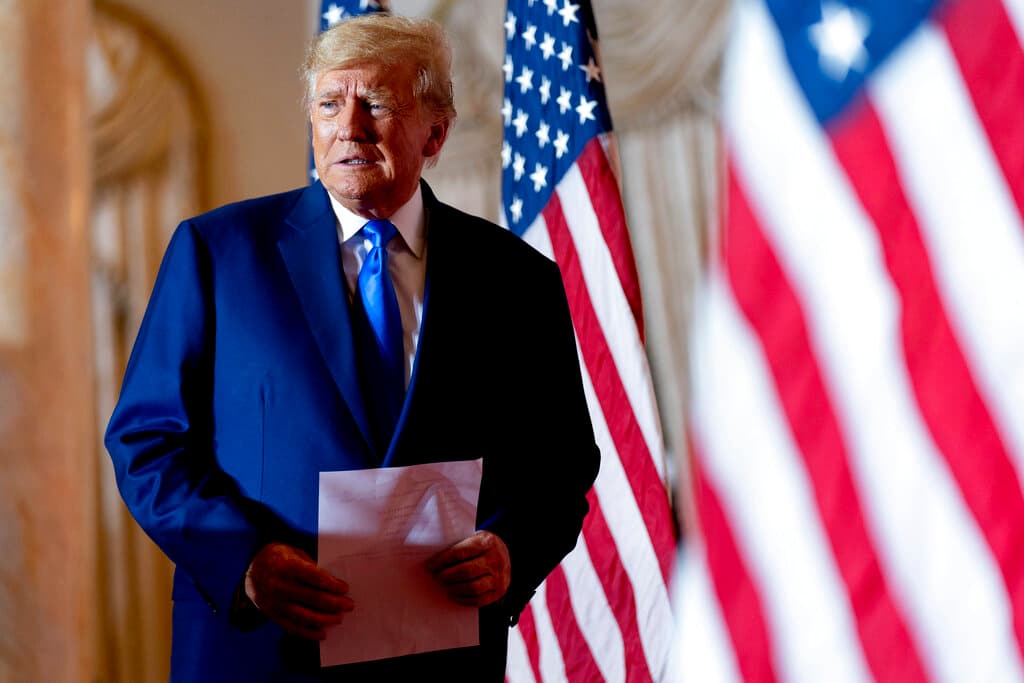As Bragg Eyes Possible Indictment of Trump, How Will He Surmount the Statute of Limitations?
Statutes of limitations are intended to protect defendants against stale prosecutions, reflecting the 6th Amendment to the United States Constitution that guarantees a speedy trial.

Under New York law the statute for misdemeanor is two years and for felony five years. Statutes of limitations are intended to protect defendants against stale prosecutions. They reflect the 6th Amendment to the United States Constitution that guarantees a speedy trial, as does the due process provisions of New York law. Justice delayed is justice denied to defendants, because memories fade, witnesses become unavailable and exculpatory evidence becomes more difficult to obtain.
There are of course exceptions to most statutes of limitations. Any period of time during which the potential defendant is hiding or is otherwise unavailable, doesn’t generally count in calculating the limitations. Accordingly, the New York State statute expressly exempts “any period [when] the defendant was continuously outside the state” or when “the whereabouts of the defendant were continuously unknown and continuously unascertainable in the exercise of reasonable diligence.”
Obviously President Trump’s whereabouts were always known. After all, he was in the White House for most of the time. Moreover he was never continuously out of New York, having repeatedly returned to the state where he maintained a residence until after he left the presidency.
So what will the District Attorney of New York county argue? He will probably try to prove that Trump was not continuously in New York, because he was continuously in Washington and Florida. That argument should fail both as a matter of fact and as a matter of policy. As a matter of fact, Trump will be able to demonstrate visits to New York.
As a matter of policy, an indictment can be filed against the defendant even if he is not physically present in New York. In fact it is likely that the current indictment against Trump may well be filed while he is in Florida. He will then come to New York where he can be formally arrested, arraigned and processed.
Why then did the Manhattan district attorney not file misdemeanor charges within two years and felony charges within five years of the alleged offenses? For a very good reason: Alvin Bragg’s predecessors did not believe they had a strong enough case to indict and convict.
They could easily have indicted, because, the former chief judge of the New York Court of Appeals quipped, “a prosecutor can get a grand jury to indict a ham sandwich.” Yet they obviously felt they did not have a case sufficient to result in conviction and affirmance. So they did not indict.
Indeed, Mr. Bragg himself didn’t even indict during the early part of his administration. If he indicts now, it will not be because this case is any stronger than it was within the period of limitations. He will indict now because of increasing political pressures from constituents, donors and staff lawyers.
None of this is sufficient to evade the policies behind the applicable statutes of limitations. Accordingly if and when Mr. Trump is indicted, his lawyers will immediately move to dismiss on the basis of the statute of limitations. This will probably require an evidentiary hearing at which prosecutors will be required to demonstrate that Trump was not continuously in New York for sufficient periods of time.
In the unlikely event they were able to do so, a reasonable judge might well conclude the policies behind statutes of limitations and speedy trial guarantees require a dismissal of the indictment, because there was no legitimate excuse for not indicating earlier.
In the usual case, a prosecutor would be hesitant to bring a stale case like this one, knowing that there is a good chance that it will be dismissed, but this is anything but a usual case. This is part of the “get Trump” syndrome, about which I have written in my book by that title. It is not surprising that a prosecutor who would stretch the substantive criminal laws in an effort to “get Trump” would also stretch the statute of limitations.
It seems as if Mr. Bragg doesn’t much care if a trial or appellate judge throws out the case on statute of limitations grounds. He will be perceived as having done his job, and the blame will be placed on the judges. But some judges will not want to take to blame for so unpopular an action, because they too face reelection.
In states with elected prosecutors and elected judges, the primary check on abuse lies in the hands of prosecutors but the prosecutors themselves. This worked when distinguished lawyers such as Robert Morgenthau and Frank Hogan occupied Mr. Bragg’s office. It works less well when an opportunistic politician succumbs to partisan pressures.

